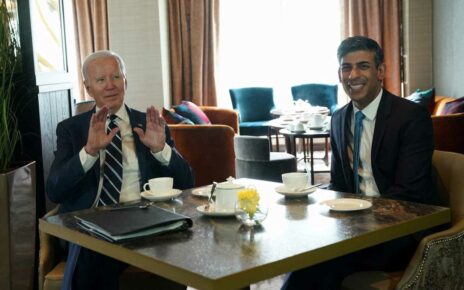Singapore: A senior Indonesian minister has taken aim at Pauline Hanson over her claims that Australian tourists could bring foot and mouth disease into the country from Bali because cattle roam the streets there and “shit on the ground”.
The One Nation senator has joined the opposition in attacking the Australian government’s response to the outbreak of the livestock virus in Indonesia.
One Nation senator Pauline Hanson in the Senate.Credit:James Brickwood
In an outburst in the Senate on Thursday she said Bali was “totally different to other countries” when it came to disease control.
“Cattle roam the streets, cattle shit on the ground, people walk in that shit,” she said.
“That shit is then brought back in their clothing and on their person and back into this country.”
Agriculture Minister Murray Watt has rejected the criticism of the government’s biosecurity measures, accusing the Coalition and Hanson of politicising the threat to Australia’s livestock industry.
On Saturday, Hanson’s comments also sparked a riposte from a member of Indonesia President Joko Widodo’s cabinet.
Sandiaga Uno, Indonesia’s minister for tourism, was not impressed by Hanson’s comments.Credit:Achmad Ibrahim
Indonesia Minister for Tourism and Creative Economy Sandiaga Uno said Hanson’s remarks were not based on facts.
“Firmly and with straightforwardness, I say, never insult Bali, Indonesia’s tourism icon and centre,” he said.
“Don’t disturb [our] peace, moreover our economic recovery with untruthful statements.“
He added: “Oh yes, FYI, Bali is not a country. Next time, please check it first in Google.”
The Albanese government has resisted calls from the opposition to shut the border with Indonesia to prevent a possible spread of foot and mouth to Australia, a development that would shut down the livestock and live trade export industries and could cost the economy as much as $80 billion over a decade.
Penned cattle in Bali during the foot and mouth outbreak in July.Credit:Amilia Rosa
That decision has been backed by major livestock industry groups, who warn it would do great damage to farmers’ trade with Indonesia without reducing the possibility of foot and mouth entering the country.
Professor I Ketut Puja, a member of Indonesia’s foot and mouth taskforce and the head of the Bali branch of the Indonesian Veterinary Medical Association, also hit out at Hanson’s remarks.
“Maybe she has never been to Bali. [What she described] is the ancient time,” he said.
“Today’s Bali is different. You don’t find cows wandering around in Denpasar, for instance. They are definitely not in cities. They are in cages, in villages or tied up at coconut trees in someone’s field.”
Australian Meat Industry Council chief executive Patrick Hutchinson told The Sydney Morning Herald and The Age last month that the highest risk to Australia was not by cow dung on shoes but by illegally smuggled meat products.
“The key thing I say to people who want a ban is when was the last outbreak globally caused by poo on the boot [of travellers returning from Bali]?” he said.
Having ramped up biosecurity levels, the government is working with Indonesia to assist with containment and on its vaccine rollout.
That shapes as a monumental assignment because of a shortage of vaccines to administer to Indonesia’s 33 million head of livestock including 18 million cattle.
According to figures released by Indonesia’s foot and mouth taskforce on Friday, 1.05 million head of livestock had been vaccinated throughout the country. In Bali, 44,559 of a total cattle population of 989,932 have been vaccinated. The government aims to have used the 3 million vaccine doses it has by the end of September and plans to produce 28.7 million shots by the end of the year.
Professor Wiku Adisasmito told a media briefing this week that the rate of new infections had slowed down across the 22 provinces the virus has reached. There were no active cases in the past week in Bali but officials remain on alert.
“We hope to have the disease under control by the end of this year. We are doing everything we can to minimise the chain of transmission,” Professor Wiku told the Jakarta Foreign Correspondents Club.
Most Viewed in World
From our partners
Source: Read Full Article



